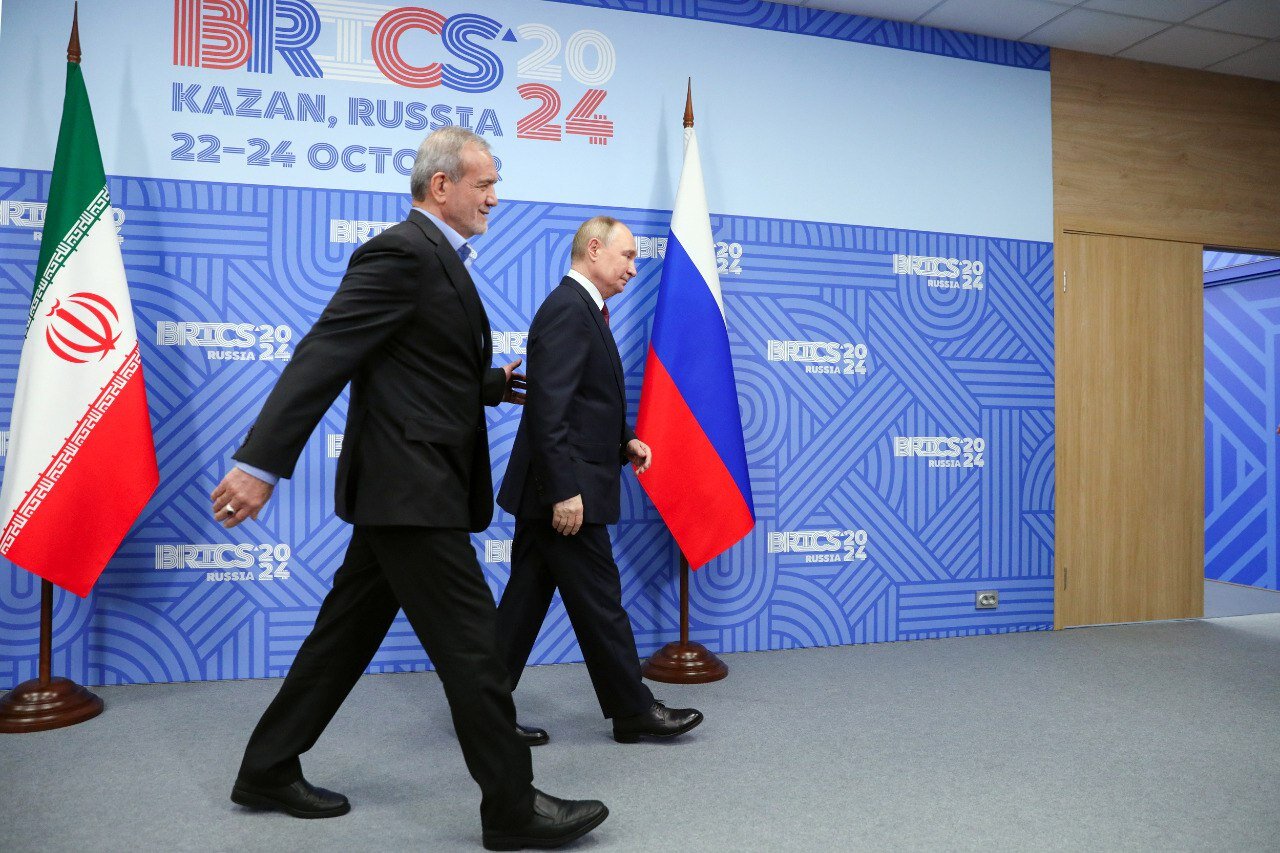Golden opportunity
Golden opportunity
TEHRAN – The BRICS bloc, once a club of five, threw open its doors in 2023, inviting six new members to join its ranks: Saudi Arabia, Iran, Ethiopia, Egypt, Argentina, and the United Arab Emirates. In the beginning of 2024, Iran, Egypt, Ethiopia, and the UAE officially stepped into the BRICS fold which now represents 46% of the world's population and contributes 37% of global GDP (measured by purchasing power parity).

While the founders of BRICS have repeatedly declared their vision of the group as a catalyst for reshaping the Western-dominated world order, for some members, it offers a unique opportunity to break through long-standing roadblocks. For Iran, grappling with decades of intransigence and dishonesty from Western politicians, BRICS presents a pathway to finally mitigate the sting of Western sanctions that have been seemingly insurmountable, even with a comprehensive deal like the Joint Comprehensive Plan of Action (JCPOA).
In 2015, when Iran sat down with the U.S. and its European allies to negotiate concessions on its nuclear program in exchange for the termination of Western sanctions, many hailed it as a crucial step. For officials who had weathered decades of pressure from the U.S., the JCPOA appeared to signal an end, or at least a long pause, to Western hostility. When the U.S. withdrew from the JCPOA in 2018 and reinstated old sanctions, adding new, crippling ones, some officials remained convinced that mending ties with the West was the best course of action. But after several rounds of negotiations characterized by escalating Western pressure, Iranians began to shift their focus away from the West and toward the Global South.
The BRICS bloc holds immense promise for its members. Led by China, poised to become the world's top economy, Russia, a military behemoth with a global political footprint, India, the world's most populous nation with a rapidly developing economic force and South Africa and Brazil, both dominant players in their respective continents, BRICS is a blend of economic strength, political influence, and diverse perspectives.
Iranian President Masoud Pezeshkian returned to Tehran on Thursday after attending the first BRICS summit held after Iran’s addition to the bloc. Based on what the president himself has reported, and based what different media platforms have said, this visit was a pivotal moment for Iran as it solidified Iran's integration into the group, fostered cooperation with other member nations, and advanced shared goals of counteracting Western influence and promoting a more balanced global order.
Below are what the president says were the breakthroughs of his attendance at the BRICS Summit:
Enhanced relations with BRICS members: Pezeshkian highlighted the "golden opportunity" to enhance Iran's convergence with BRICS member countries and the swift implementation of agreements made with some of them.
Counteracting Western unilateralism: Pezeshkian emphasized BRICS's goal of counteracting American unilateralism, the dominance of the dollar, and unfair sanctions against various countries.
Establishing a separate fund: He emphasized the importance of establishing a separate fund to assist BRICS member countries and counter U.S. sanctions, highlighting the organization's push for financial independence.
Strengthening global position: The summit aimed to solidify BRICS's global position against unilateralism by enhancing communication among member countries.
Bilateral discussions: Pezeshkian noted the opportunity to have bilateral discussions with leaders from 10 countries, effectively accomplishing the equivalent of 10 foreign trips.
**Condemnation of Israeli crimes: **The final statement of the BRICS summit condemned Israel's actions in Gaza and Lebanon, demonstrating the group's commitment to supporting Palestinian rights.
Focus on multilateral cooperation: The summit emphasized the development of monetary, economic, cultural, scientific, expert, and security communications among member countries, showcasing a commitment to multi-faceted cooperation.
Iran, joining the BRICS alongside three other nations in January, also brings a unique dimension to the group. This ancient nation, situated at the crossroads of Asia, Europe, and Africa, holds a strategic position that grants it influence over crucial trade routes and energy corridors. It boasts vast natural resources and a formidable military force, encompassing a powerful conventional army, navy, and air force, alongside advanced missile and drone programs. Iran's close alliances with regional actors across West Asia also contribute to its considerable influence within the region.
source: tehrantimes.com